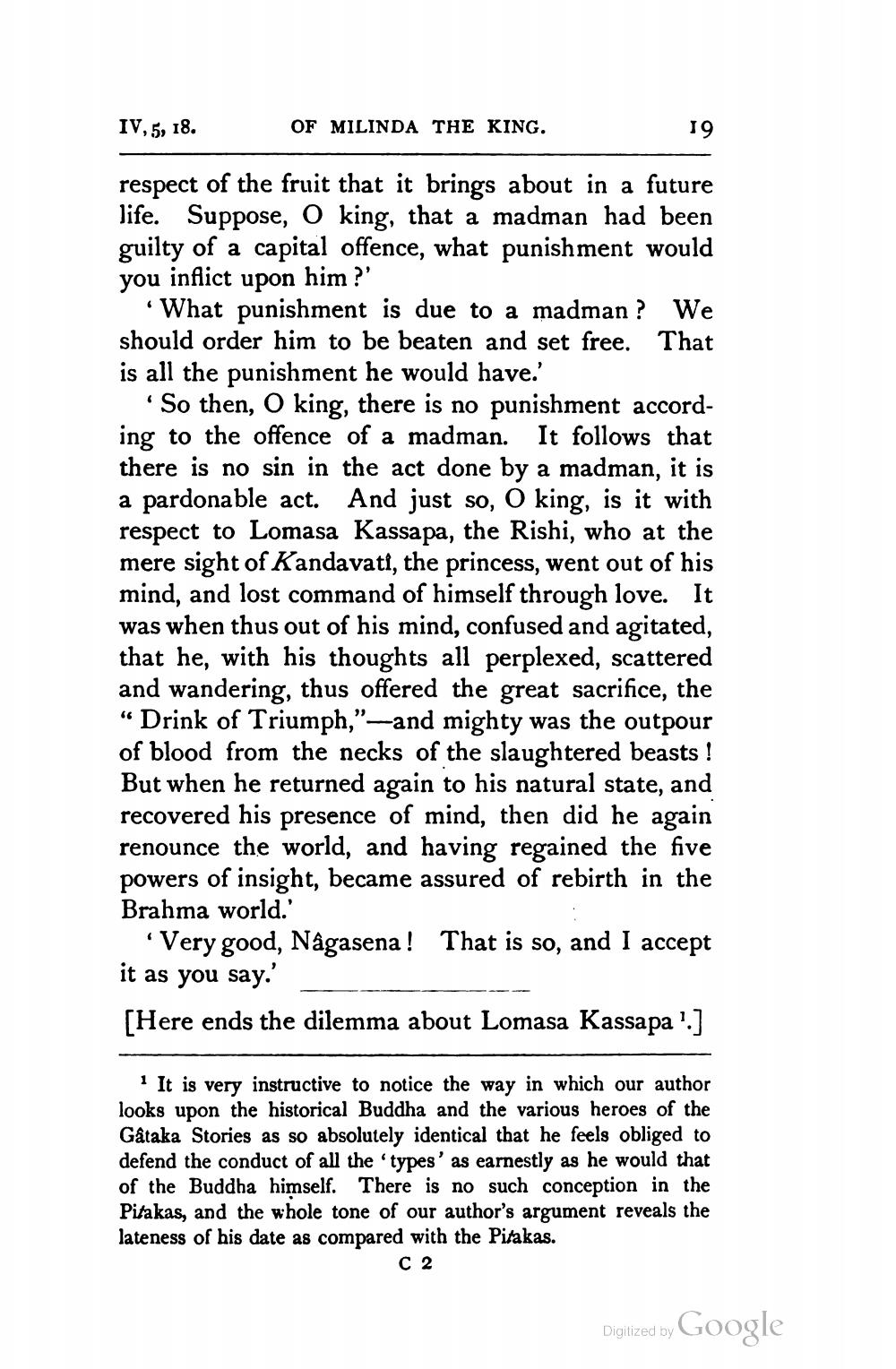________________
IV, 5, 18.
OF MILINDA THE KING.
19
respect of the fruit that it brings about in a future life. Suppose, O king, that a madman had been guilty of a capital offence, what punishment would you inflict upon him ?'
What punishment is due to a madman? We should order him to be beaten and set free. That is all the punishment he would have.
So then, O king, there is no punishment according to the offence of a madman. It follows that there is no sin in the act done by a madman, it is a pardonable act. And just so, O king, is it with respect to Lomasa Kassapa, the Rishi, who at the mere sight of Kandavati, the princess, went out of his mind, and lost command of himself through love. It was when thus out of his mind, confused and agitated, that he, with his thoughts all perplexed, scattered and wandering, thus offered the great sacrifice, the " Drink of Triumph,”—and mighty was the outpour of blood from the necks of the slaughtered beasts ! But when he returned again to his natural state, and recovered his presence of mind, then did he again renounce the world, and having regained the five powers of insight, became assured of rebirth in the Brahma world.'
Very good, Någasena! That is so, and I accept it as you say.' [Here ends the dilemma about Lomasa Kassapa ?.]
1 It is very instructive to notice the way in which our author looks upon the historical Buddha and the various heroes of the Gåtaka Stories as so absolutely identical that he feels obliged to defend the conduct of all the types' as earnestly as he would that of the Buddha himself. There is no such conception in the Pitakas, and the whole tone of our author's argument reveals the lateness of his date as compared with the Pitakas.
C2
Digitized by Google




